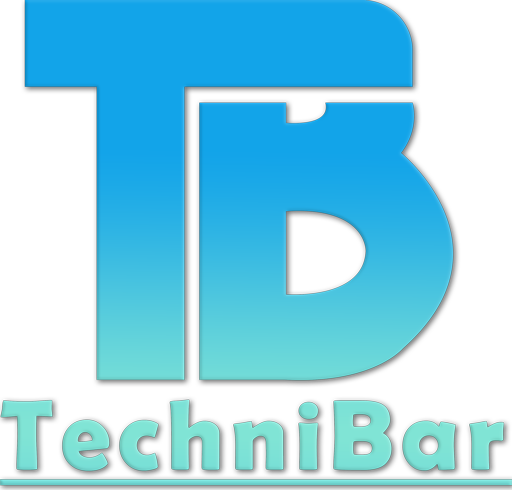Fintech stands for financial technology. Dee Hock, the Father of Fintech.Fintech has gone through an innovation period, as a simple banking software to the then advanced digital financial systems. After the inauguration of the first transatlantic cable in 1866, the first electronic fund transfer system utilised technologies such as telegraph and Morse code in 1866 in the USA, Fedwire in 1918. Fintech tracks its early steps back to the middle of the last century when the use of computers in banking activities was initiated. Mainframes were first used by banks to process transactions, customer details and brothers accounting much more efficiently.Businesses such as PayPal established in 1998 transformed online payment systems, and made it possible to transfer money across borders in a secure way.
What is Fintech?
Fintech or Financial Technology can be defined as a combination of newer technology to financial services to make them more efficient, accessible and friendly. It encompasses banking innovations, payments innovation, lending innovation, investment innovation, insurance innovation, and cryptocurrency. The banks have a typical task of holding and lending money whereas fintech can just speed up a process, make it more convenient or otherwise increase its accessibility. A simple list of fintech examples:
- Paypal
- Venmo
- Google Play
- Robinhood
- Lemonade
- Bitcoin
- Wealthfront
Fintech Revolution: From Ledgers to Digital Wallets
The Fintech Revolution is the transformation that the financial sector has experienced in the short period that it has been developing with the help of technology. It has transformed the face of money management, investment and transfer by individuals, businesses and institutions in a radical way. Fintech has laid down financial services like never before, by engaging digital tools that make such services faster, accessible, and efficient. The initial phases of fintech in India were characterized by the advancement of the traditional banking systems to a digital format and the emergence of mobile phone and internet-banking. It was at this period that banks began to be transformed through technology by shifting their manual banking services to online banking and automated teller machines networks. It has incorporated innovation into finance and has brought about the inclusivity of the money management which is transparent and dynamic. With technology ever-advancing, we can expect even more potentially revolutionary change to how we conduct our financial transactions with the Fintech Revolution.
Digital Dollars: Innovative Applications of Fintech
Its uses cut across many fields and thus financial transactions become very quick, convenient and safe. The most important Fintech uses are presented here:
Digital payment
They enable people and companies to make electronic money transfers without using cash or checks, thereby reducing the speed of transactions, risk of losing money and checks, making it more convenient. Some examples include:
- Mobile payment apps
- Bank Transfers
- Digital Cards
- Biometric Payments
Online Lending
It uses technology to offer people and enterprises more accessible and easy-to-get loans that are usually cheaper than those offered by the conventional banking systems.Some examples include:
- Paytm
- Zerodha
- Razorpay
- Money view
Insurance Technology
Insurance technology is another name Insurtech . This is through AI, big data and digital platforms, through which Insurtech is changing the way insurance policies are placed, integrated, and claimed. Some platforms given:
- Lemonade
- Metromile
- Oscar health
Blockchain
A pioneer of the Fintech revolution, blockchain technology gives a safe, transparent and decentralized means of recording and validating financial exchanges. In contrast to typical databases that were controlled by a centralized authority, blockchain is based on distributed ledger; this means that different participants can verify transactions, not using an intermediary.
Regulatory technology
RegTech (Regulatory Technology) A subgenre of Fintech aimed at assisting financial institutions in their regulatory compliance using technology to do so in an efficient, cost effective manner. It also enjoys the use of AI, big data and automation in order to optimize the process such as reporting, monitoring and fraud detection.Some platforms given:
- Truiloo
- ComplyAdvantage
- Onfido
Fintech Advantages: Unlocking the Future of Finance
Fintech (Financial Technology) has transformed the provision of financial services into something less cumbersome, and more beneficial to the consumer, business promoters and financial institutions.
1. Enhanced Accessibility
Fintech opens access to financial service to more individuals including those who are located in remote or underserved regions. Online lending systems, mobile phones, and digital wallets allow customers to get services even though they-not visiting branch offices.
2. Fast and Easy
Online solutions make transactions real-time, loans can be issued quickly and consumers get access to financial services 24/7. The ability to pay bills, transfer money or invest takes no time thereby enhancing overall efficiency.
3. Lower Costs
Banks and fintechs save on costs of operations through automation and digitization. More often than not, this leads to the reduction in fees as well as improved interest rates to the consumer.
4. Transparency and Security
Fintech uses encryption and blockchain and safe digital platforms to deliver transparent and unforgeable financial transactions which are less susceptible to fraud and give more credibility.
5. Personalized Services
Machine learning and AI enable fintech to provide custom financial advice, investment strategy, and personalized products to the users on the basis of their behavior and preference.
6. Financial Inclusion
Fintech offers a possibility to utilize banking, credit and investment services to people who are not able to use these services because of geographic, economic or social distances.
7. Innovation and New Opportunity
With fintech, there are new opportunities to develop new innovative products such as robo-advisors, peer-to-peer lending, and decentralized finance (DeFi), which opens up opportunities to businesses and consumers.
Challenges in Digital Finance: A Fintech Perspective
Although Fintech has brought about a transformation in the financial sector, there are a number of issues which potentially may harm its development, acceptance, and reliability. The knowledge of these challenges to the consumers, businesses and regulators is of essence. Whereas the possibilities offered by Fintech are enormous, it is challenged by regulatory, technological and trust issues. The solution to these problems is to innovate, establish adequate cybersecurity, compliance and enlighten the consumers so that it is sustainable and success is ensured in the digital finance environment in the long run.Some challenges include:
- Compliance issue
- Cybersecurity threat
- Trust issue
- Market risks
- Data management
Beyond Banking: The Future of Fintech Innovation
The realm of Fintech is also actively developing, with new technologies, artificial intelligence, blockchain, machine learning, and cloud computing becoming more and more prevalent.The trends going forward are:
- Embedded Finance: A non-financial business integrates financial services, e.g. loan app on an e-commerce platform.
- Decentralized Finance (DeFi): The removal of middle-man in the financial dealings by utilizing block-chain and providing the ability to borrow, lend, and trade on a peer to peer basis.
- Artificial Intelligence-Based Insights: AI-based predictions of market trends, the most appropriate investments and tailored financial insights.
- Sustainable Fintech: Platforms specializing in green investing and sustainable financial opportunities.
Conclusion
Fintech has ceased to be a buzzword and is a real game-changer, a means to innovation, and financial inclusion. Using technology, the Fintech companies are modernizing the traditional financial services rendering them more effective, accessible, and more user-friendly. The industry will further reshape how we manage, invest and preserve our money, as it gathers momentum, and reshape the future of the economy worldwide.
FAQS
1. What is the usage of Fintech?
Fintech ensures that finance is more inclusive, efficient, and cheap. It assists individuals in taking loans, controlling and paying money without depending so much on the normal banks.
2. Is Fintech secure?
Fintech that offers security does so most often through encryption, multi-factor authentication and access to regulation. Nevertheless, they are under threat of hacking, as digital services.
3. Is Fintech an alternative to the banks?
There is a likelihood that fintech does not totally substitute the role of banks since it is more likely to complement or collaborate with banks. This has seen many banks implementing the fintech innovations in order to stay afloat.
4. What is the difference between Fintech and traditional banking?
Instead of using physical branches, when compared to a traditional bank, fintech offers quicker and easy to use, digital-initiative and customer-centric service via apps and online-only platforms.
5. What are the mechanisms of Fintech?
Fintech can be defined as the process of intertwining technology (mobile apps, AI, blockchain and data analytics) with financial services so that it becomes more fast, accessible and convenient.









